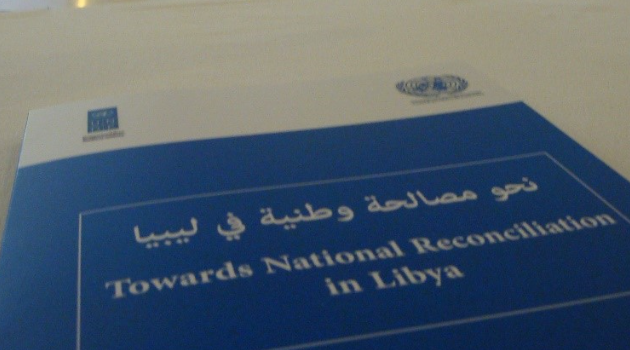On the Way to Reconciliation: Addressing Arbitrary Detentions in Libya
UNDP and UNSMIL organized a two-day workshop in Tunis to address issue of arbitrary/prolonged detention in Libya in the framework of national reconciliation.
More than 40 Libyan stakeholders, including mayors, municipal representatives, officials, prosecutors, representatives of the judicial police and civil society, participated in the workshop.
"We are trying to find alternatives to detention in Libya and to provide solutions for vulnerable refugees," said United Nations High Commissioner for Refugees (UNHCR) representative.
The event aimed at finding a solution for the prolonged arbitrary detention, by measures related to the release of detainees and/or exchange of prisoners. The participants also discussed the role of government actors, civil society and local councils in this process.
“It is important to engage in dialogue with relevant authorities in Libya to ensure access and distribution of life-saving assistance, and to mobilize support to establish an international framework and best practices regarding detention," explained Marwan Tashani, Head Of the prisoners’ commission of the National Transitional Council.
Splitting into working groups, participants identified the immediate and long-term actions that are needed to politically address the issue of detention in Libya within a national reconciliation framework.
“There is a legal framework in Libya that has a role to play. We need to discuss how a comprehensive law on transitional justice could contribute to addressing arbitrary and prolonged detentions,” elaborated Dr. Jazzia Shatter, professor at Benghazi University.
The meeting was convened as part of the project “Towards National Reconciliation in Libya,” which aims at assisting Libyan national and local authorities, civil society and other partners in their effort to promote an inclusive vision for a comprehensive national reconciliation strategy.
The recommendations from the meeting will feed into the national strategy for reconciliation and could contribute to inform the policy and actions of the PC and the future National Reconciliation Commission.
(Source: UNDP)





